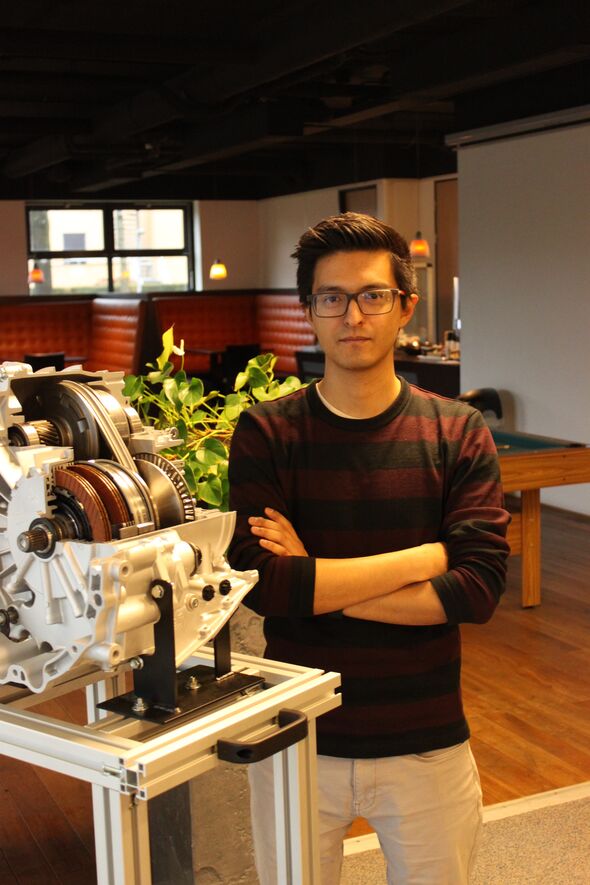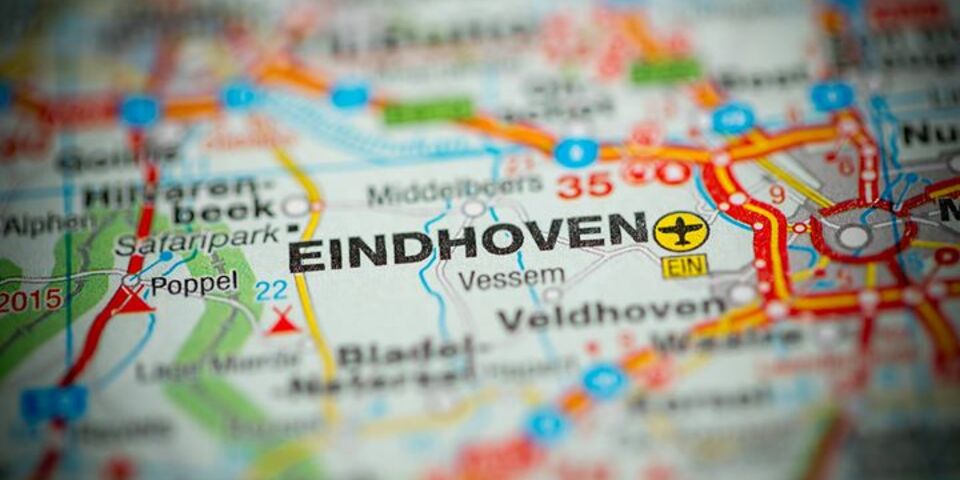Working in the straight-talking Netherlands
The Eindhoven region is acting increasing like a magnet for international knowledge workers, employees who have matured and been primed at TU/e. But how do they like it, once they start working here? Four alumni from four different parts of the world tell their story. About cultural difference in the work place, the Dutch tell-it-like-it-is mentality, and the expensive bread rolls in the canteen. “I still understand only a little of the Dutch food culture”.
Let's take off with getting to know each other. Who's sitting at the table to talk about this subject?
Emilio Maldonado (30)
Nationality: Mexican
Studied at TU/e: Automotive Technology
Now employed as: consultant at Punch Powertrain BV, supplier of powertrains (since September 2016)

Yixiao Qiao (27)
Nationality: Chinese
Studied at TU/e: Electrical Engineering
Will shortly join: Philips as an engineering management trainee

Mikhail Astafev (27)
Nationality: Russian
Studied at TU/e: PDEng Design and Technology of Instrumentation
Now employed as: software engineer at ICT Automatisering (since September 2016)

Igor Stojanov (27)
Nationality: Macedonian-Bulgarian
Studied at TU/e: Business Information Systems
Now works for: Philips as a software designer, for the past two years

Brainport Eindhoven, also known as the Silicon Valley of the Netherlands, is a multicultural melting pot. Here, English is the working language and cultural differences are secondary to the shared task being completed. When asked about the nationality of their colleagues, those interviewed sometimes have to take a moment to think. They all know they are surrounded by a colorful palette of foreign colleagues, that much is sure. But where they come from? Indians are named the most often, but Greeks, the Chinese, the Turkish and Russians are evidently well represented in this regional high-tech sector.
Nonetheless it cannot be assumed that all these nationalities will easily gel in the work place to form a cohesive group. Or as Igor Stojanov puts it so well: “We all belong to the human race. People are inclined to seek ‘others of their kind’ with whom they feel a bond and can identify. Where I work, you often see the ‘foreigners’ together. But at the end of the day everyone - regardless of their ethnicity - gets along well. As a trainee, Yixiao Qiao deliberately seeks to maximize her contact with other nationalities. “Because it is sometimes good to go beyond your comfort zone, and in that way to build a network,” she says. “But I also arrange to meet up with other Chinese twice a week, you know! With them I still feel most at home and comfortable. Emilio Maldonado feels he is mainly a connecting factor between the Dutch and his foreign colleagues, who left to themselves do not tend to seek out each other.
The decision to stay in the Netherlands after graduating may be a question of seizing an opportunity - a job appears - but can also be strategic. Mikhail Astafev: “I saw going to work in an expanding location like Eindhoven as an investment in my future. But it also offered other advantages. Thirty percent of an expat's income is not subject to tax and I am eligible for permanent residency.” Yixiao’s decision to stay on in the Netherlands was reached while she was still studying. “This country's open culture really appeals to me. People here are more likely to say what they think of something. And because my husband also found work here, it was an easy decision.” Although his winning a scholarship in the Netherlands meant Igor was going to be staying on in the Netherlands for at least three years after graduating, he didn't need this incentive. “Come what may, I wanted to work here. The Dutch are one of the world's happiest peoples and their country is one of the best to live in.”
Permits, homes and driver's licenses
For most of them, the pathway to the Dutch job market happily did not involve endless organizing and intensive searching. Here, matters like work permits, a visa and even a place to live are often arranged in advance by the employer. But anyone having to make their own arrangements must beware of exploitative landlords, Mikhail knows. “You have to find out your rights in advance, as well as the going rates for rooms because the prices asked are often much too high. That's why it is especially nice if your employer takes care of things like that for you.” As a European citizen himself, Igor has noticed that expats have great freedom of movement within the EU zone.
But Yixiao, as an Asian, also found she was well taken care of: “Philips had arranged everything. I needed only to fill in some documents and my visa, work permit and accommodation were in order.” Another advantage of the Netherlands suddenly occurs to Yixiao. “Foreigners who graduate in the Netherlands receive a search visa of sorts for one year. You can spend up to this amount of time looking for work. That's of course a very generous period.” Mikhail believes there's also a disadvantage to be weighed up: “Foreign driver's licenses become invalid six months after the holder arrives. But as soon as you are formally recognized as an expat, it is quite easy to convert your license into a Dutch one.”
Do our foreign guests now speak any words of Dutch, or is that not necessary in an environment where only English is spoken? Emilio: “My employer neither expects nor requires that I learn the language. Still, I'm considering learning Dutch because if you don't you will always be an outsider.” Mikhail agrees with him. “It's not an absolute necessity where I work either, but having a command of the language - to whatever extent - can make the simple difference between having a life and getting by. It fosters your integration.” But Igor sees a drawback. “Of course you can learn the language but at work you soon revert to English because that's the working language. That inevitably hampers your language development.”
Employment culture shock
For some expats, their entry into the Dutch work place triggers an employment culture shock. Especially where communication is concerned. Emilio was happily surprised, for example, when he noticed that people address each other by the first names. “That makes it so much easier to talk,” he thinks. Here, too, he came across paid overtime for the first time. “We don't have that in Mexico. Overtime is something you do there unconditionally. It shows your employer how grateful you are that you are permitted to work for him.”
Mikhail was soon introduced to the tell-it-like-it-is mentality. Saying what you think and doing what you say. “I soon came to love it. It means a lot of misunderstandings and gossip are avoided here.” The flat organizational structure is another thing many expats find striking. “As an employee you can simply say ‘no’ to your boss and even go on to discuss the matter together.” Igor: “What's more, employers here recognize that there's more to life than work.”
But the impression the Netherlands makes isn't all positive when it comes to cultural differences. “How can a developed country like the Netherlands have such an underdeveloped food culture?” Mikhail wonders. Every day the canteen is stocked with mediocre bread rolls that you pay through the nose for. I don't understand it at all.”
To conclude, do the expats have any words of advice for the expats of the future? Mikhail: “Don't assume you'll earn a big salary when you start out. You could be very disappointed. And simply cook or make your own lunches, instead of relying on the company canteen. Yixiao: “Because expats often assume a modest demeanor, they are sometimes verbally overpowered by their Dutch colleagues. While modesty is a fine virtue, foreigners would do well to ditch it more often and become more involved in debates. You no doubt have just as much to offer as your Dutch colleagues. Let it show.”


Discussion